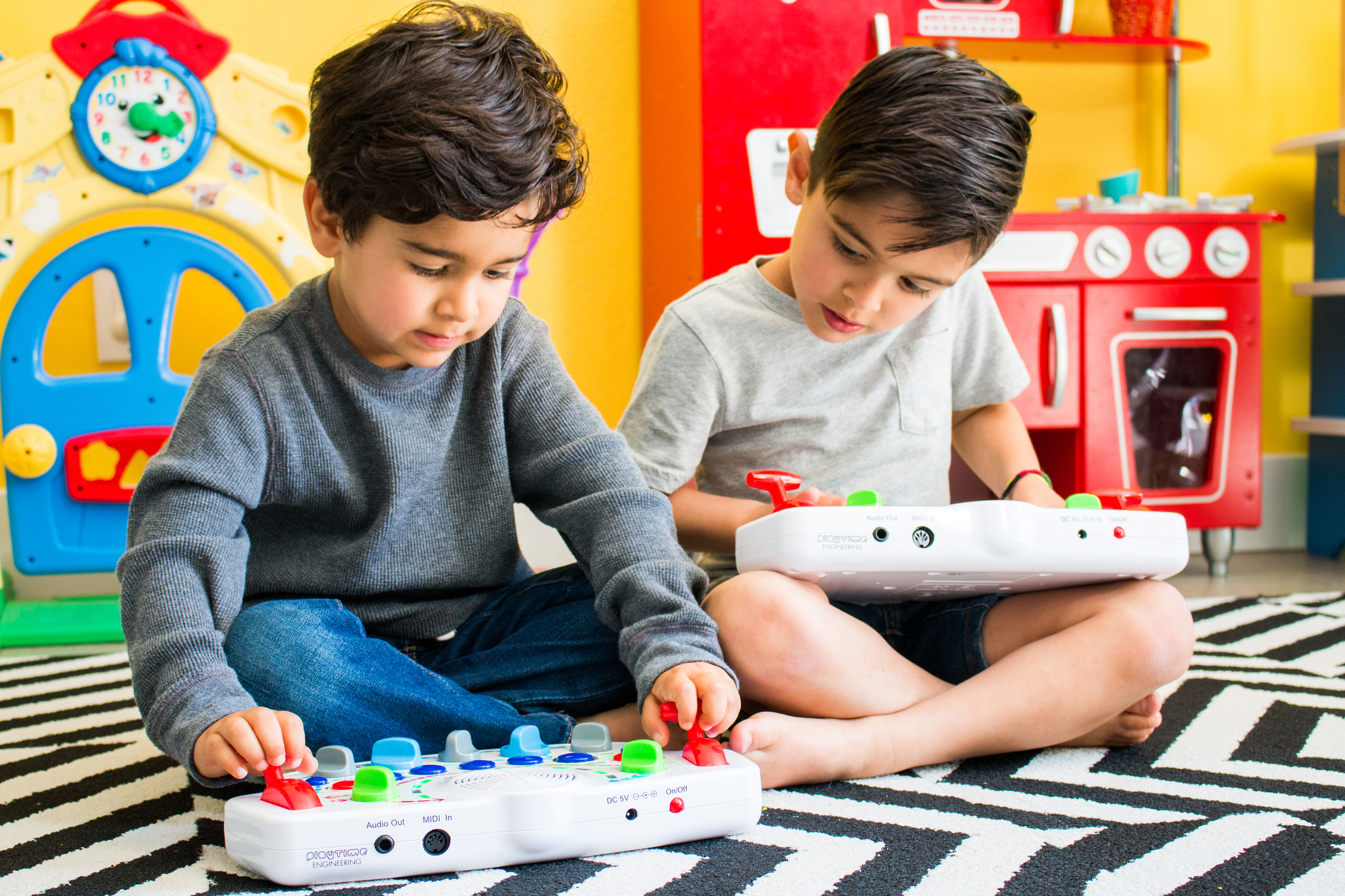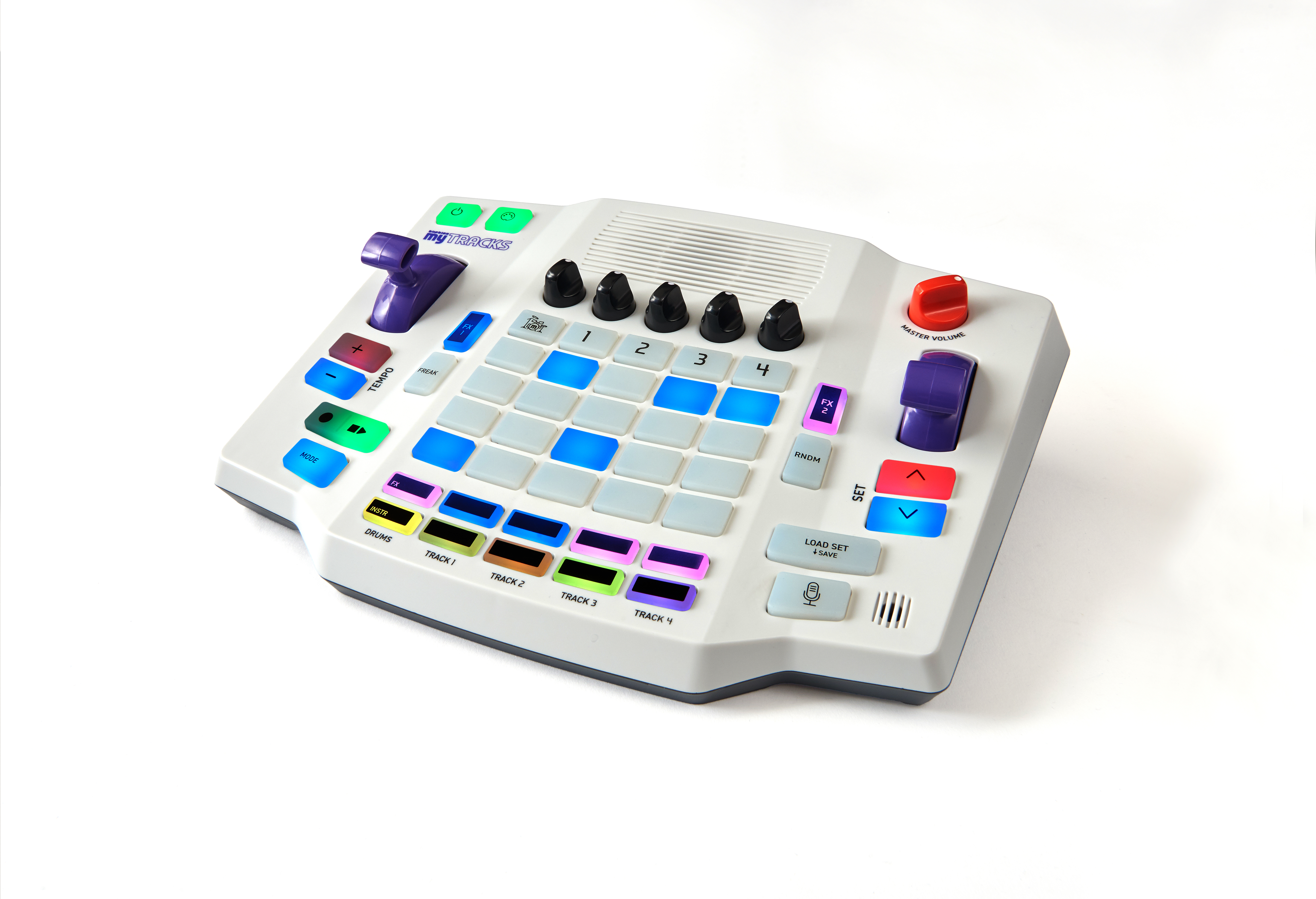Musical toy startup Playtime Engineering wants to simplify electronic music making for kids
Troy Sheets began making music at 15 years old in his home studio with a keyboard synthesizer, drum machine and four-track cassette recorder — an impressive setup for a high school sophomore. However, it’s rare for young, up-and-coming musicians to have access to advanced equipment (other than a free app on their phone). And most adolescents can’t afford it. Plus, for someone starting out, a synthesizer can be confusing to use.
That’s why Sheets decided to develop the $199 Blipblox, an affordable kid-friendly synthesizer designed for ages three and up.
“I thought that there’s an opportunity to create a toy-like device that was simplified so more people could have fun using these tools that had previously been reserved for professional musicians because of their cost and complexity,” Sheets told TechCrunch.
Now, Playtime Engineering — Blipblox’s parent company — is ready to release its latest product. Called MyTracks, the new “toy-like instrument” (as the company calls it) is essentially a groovebox or electronic music production device fully decked out with a drum machine, synthesizer, built-in microphone for audio sampling and sequencer, all in one device. With its chunky control knobs and levers and an easy-to-use randomize feature, MyTracks aims to encourage music exploration and simplify beatmaking for kids. The company announced Tuesday that its Kickstarter campaign for MyTracks will open on April 9 with an expected price of $249 to $299 for backers, and the first round of products is anticipated in November. The expected retail price is $349.
The product is designed first and foremost to be kid-friendly. According to the company, all Blipblox devices underwent “rigorous” testing to ensure they are BPA-free and comply with toy safety standards. To avoid choking hazards, the plastic knobs are locked into the device so kids can’t remove them. Additionally, the batteries are secured inside a screw-down compartment.
The company says its products are the only synthesizers on the market fully certified to international child safety standards.
In terms of its design, the flashy lights and colorful buttons are meant to appeal to kids. Sheets adds that the levers are one of the most popular features since it feels like a “spaceship control panel.”
But Blipblox wants adult musicians to take it seriously as well.
“These are real musical instruments, and not just ones that look like a [toy] guitar that you press a button and it plays the same sound every time. It really does engage adults the same way that it engages kids,” says co-founder Kate Sheets.
The layout of the MyTracks machine resembles a traditional groovebox or MPC (music production center) with two effects (FX) processors, five tracks, 25 pads and over 50 acoustic, electronic and percussive instrument sounds. In addition, it has the ability to layer, record and save songs.
On the back of the MyTracks device there’s a MIDI output so professional musicians wanting to play around with a fun new toy can use it in the studio with their other gear. It also includes a stereo audio output and a USB-C for adding more tracks. Future updates will include more sound packs to provide new music styles like classical, hip-hop and EDM.
More than $300 is indeed a steep price tag for a children’s toy, and not many parents are willing to cough up that much cash. However, the company argues that it can be a great tool for children to learn how to create music, manipulate sounds and experiment. Blipblox has even been used by music teachers, including helping special-needs kids express their creativity in a non-verbal way.
“[Blipblox devices] are adjustable, so you can adjust [the volume] for different sensitivities. So, neurodiverse students have really enjoyed using our products,” Kate Sheets tells us.
The company previously won the SBO (School Band and Orchestra) Best Teaching Tool for preschool students.
“We got a lot of weird looks from parents,” Kate Sheets says, describing how people reacted to the first Blipblox synthesizer in 2018. “The music device industry looked at us and thought we were a toy, and the toy industry looked at us and thought, ‘We don’t even know what that is.’ We sort of straddled both markets for a while. And now, all these years later, we’re seeing that there really is a market for our type of products.”
Despite the initial reactions, Blipblox has managed to sell 15,000 products and raised more than $300,000 in crowdfunding to date.


